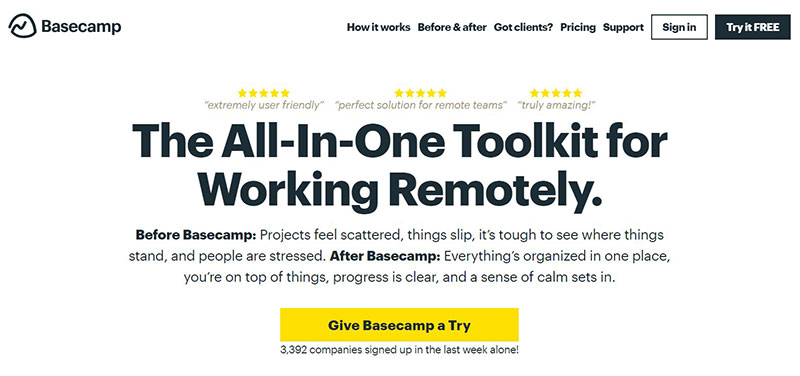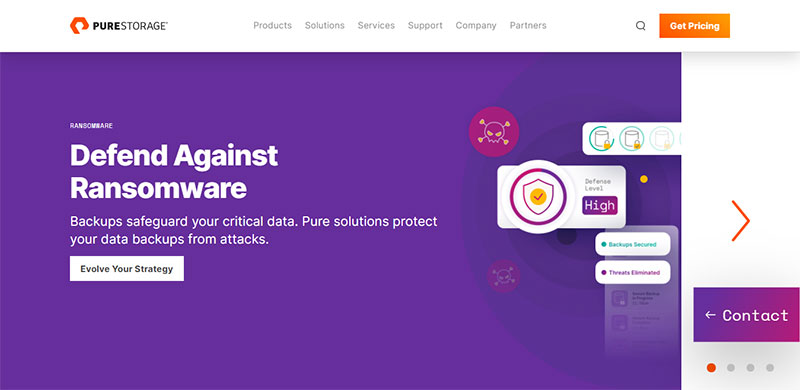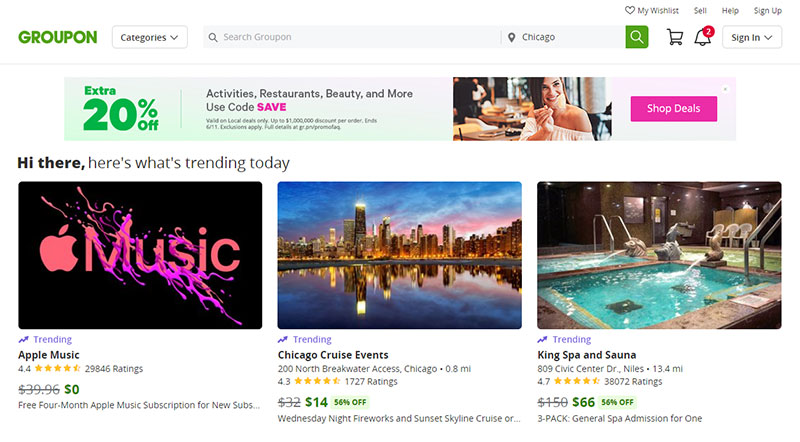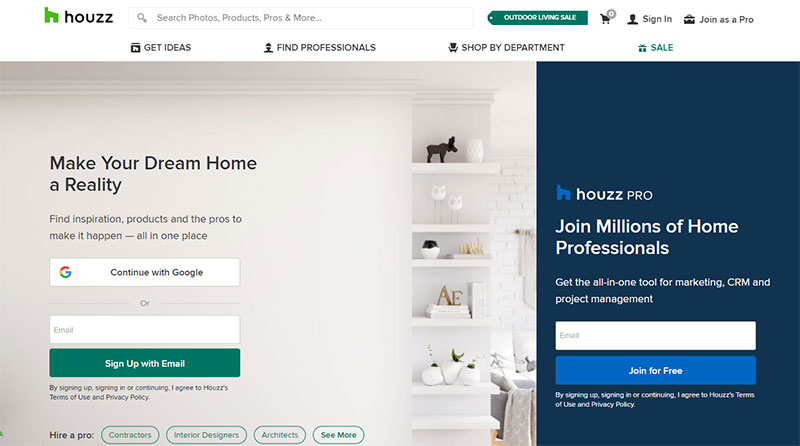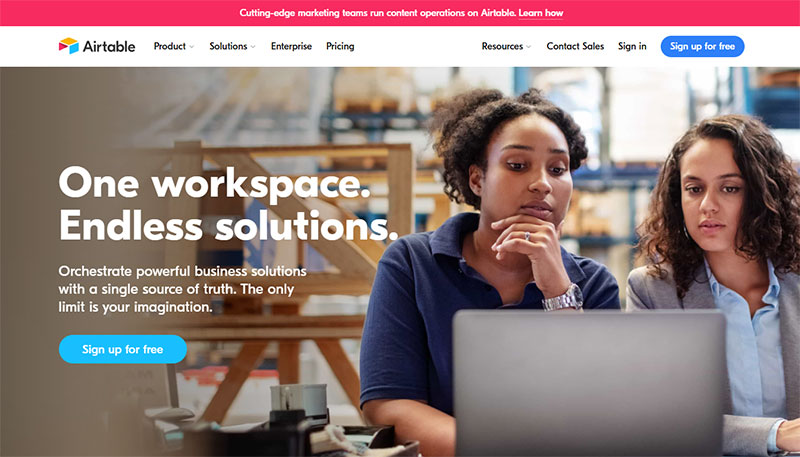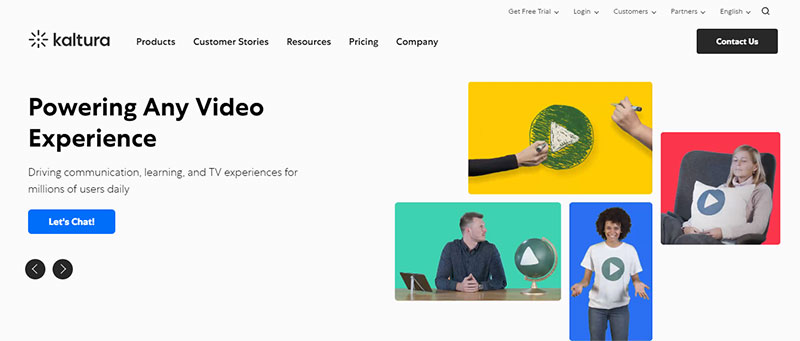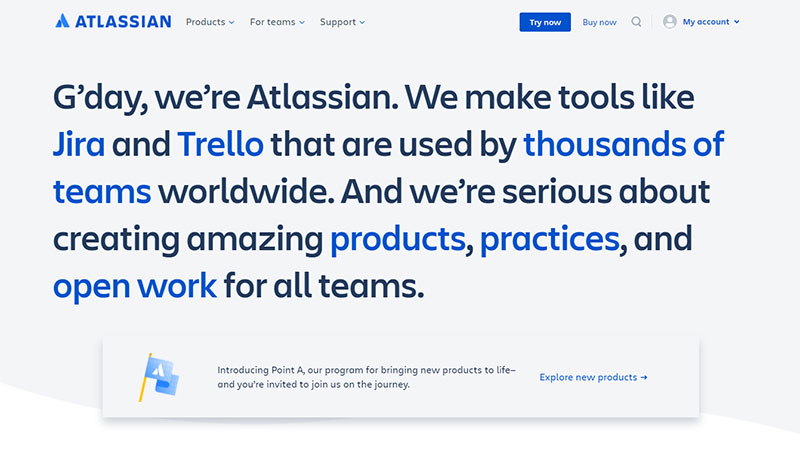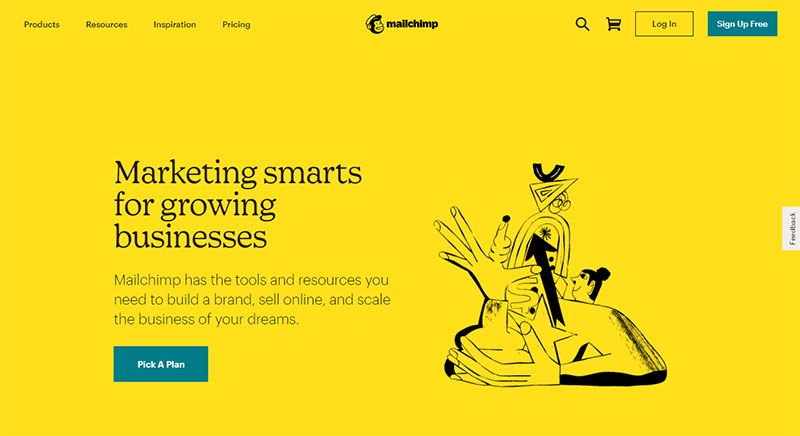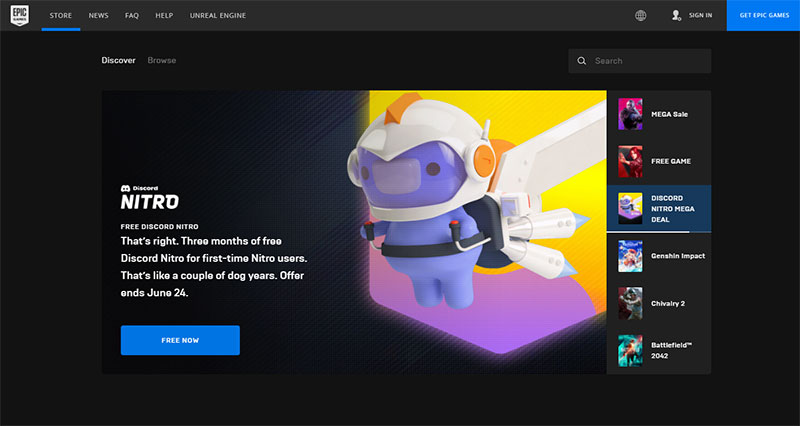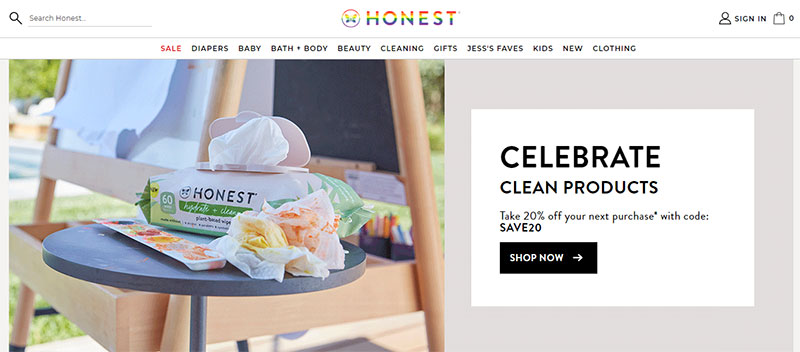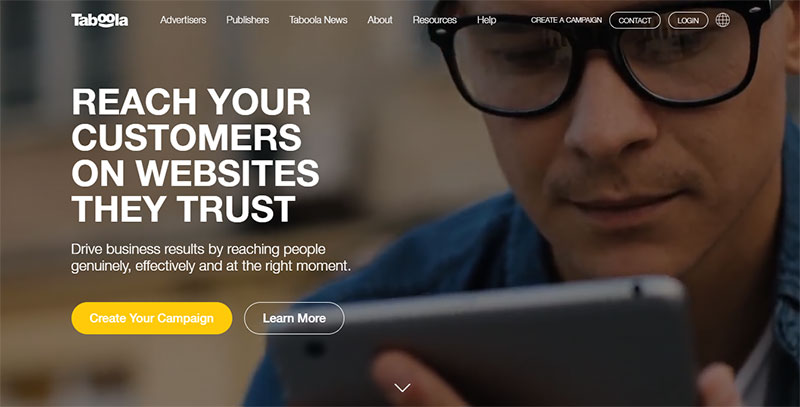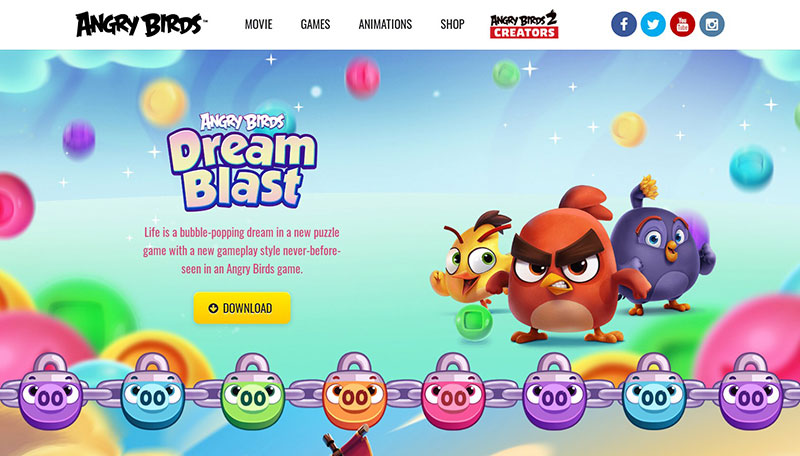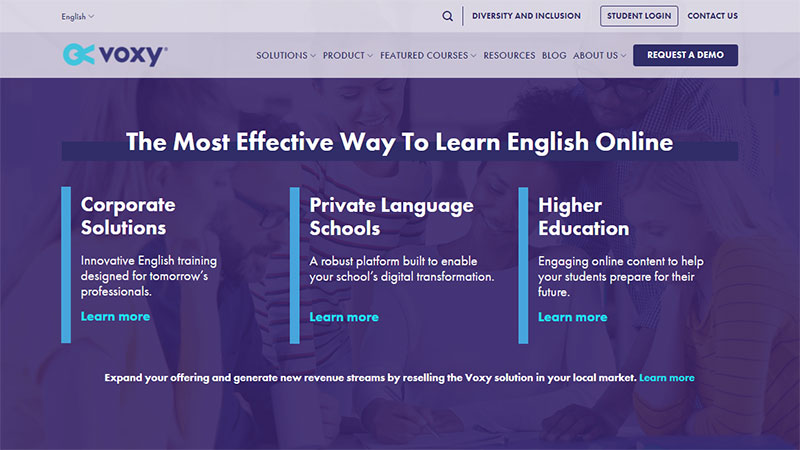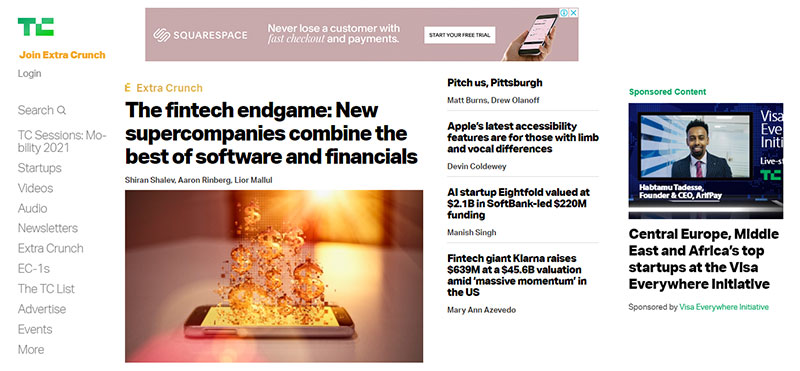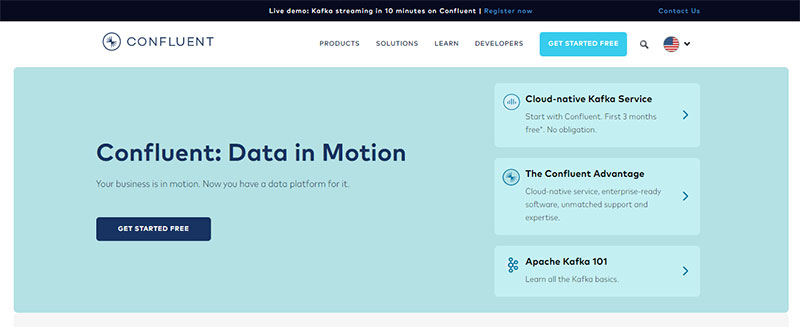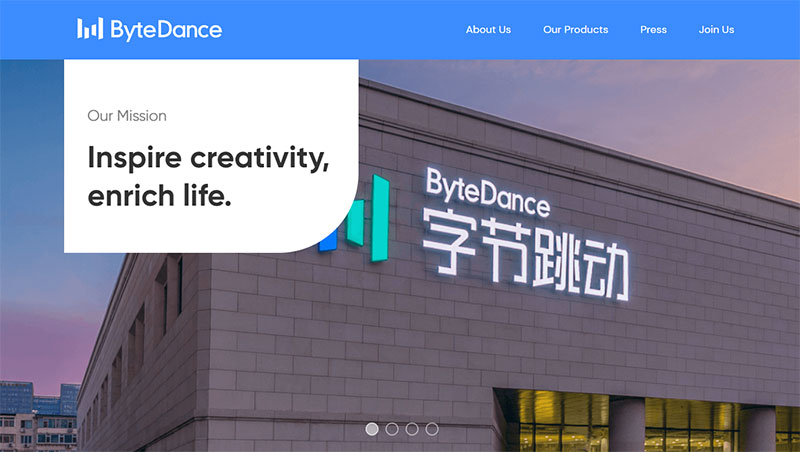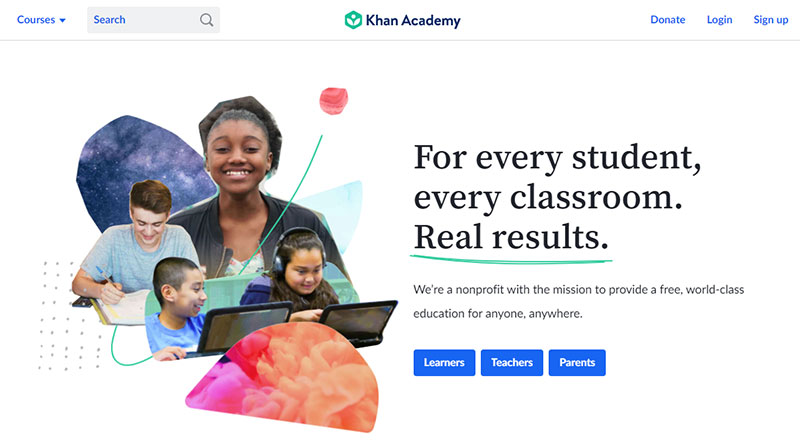The Most Successful Startups You Could Learn From

Success cannot be measured in diplomas. Universities can educate and train, but successful startups come from many sources.
More importantly, the people behind them come from every sort of background.
How successful a business will be is not easy to predict. Only 30 percent of seeded startups manage to obtain further funding.
It is therefore critical to understand what makes a startup succeed. No one wants to end up in that 70% without the funds to build a successful business.
What Makes a Successful Startup?
For a business, the end result depends on having the right ingredients.
Being in the right place at the right time helps. Hard work and teamwork are also key.
But the most critical component is to give the world something it hasn’t seen before. Your idea, product, or service has to stand out.
It is possible to learn from trial and error how to make a business unique. Yet this also comes with the risk of learning things the hard way.
Instead, consider the success stories below. These examples give insight into why some startups grow while others wither.
These are real-life examples of how all the ingredients for success come together. They offer invaluable data for any new startup.
34 Successful Startups to Learn From
Airbnb
Encourage word of mouth
The first in our list of successful startups is AirBnB.
Recommendations play a huge role in business, and also in society. Many day-to-day conversations are about things people love, things their friends should try.
This is the form of free advertising that AirBnB used to find its success. It provided a service that people loved.
As a result, their customers wanted to share AirBnB with others. Word of mouth was more valuable to AirBnB’s business than any other form of advertisement.
Uber
Solve a problem
Finding and flagging down a taxi is frustrating. There may be no taxis nearby, they might not see you, and they might choose a different passenger instead.
Uber saw that situation and founded a business aimed at fixing that problem. Customers loved that startup for making their day easier.
Now Uber is providing its service in cities all over the world. 93 million people use Uber because it found a problem to solve.
37Signals
Experiment With Variety
Like so many other businesses, 37Signals made web applications. What set it apart was its dedication to making a variety of simple and focused apps.
37Signals went from a cash-strapped startup to having a fleet of useful apps, both free and paid.
That experimentation eventually led to the Basecamp app. This app became so successful they named the company after it.
Only by experimenting with many different apps did they finally find success.
Focus on the Product First
Whatsapp wasn’t conceived of as a business. Jan Koum and Brian Acton put their energy into making the product first.
Only later did they think about a company. This was how Whatsapp became so successful.
Their revolutionary product created their startup, not the other way around. Whatsapp was the first mobile messaging app that could compete with SMS.
In 2020 this user-friendly app had revenue in the area of 5 billion USD. Not bad for a business started in 2009.
We can help you turn your idea into reality, take over your existing project, or extend your current development team.
Schedule a free consultation at hello@tms-outsource.com, or fill out the form and we will follow up with you shortly.
PureStorage
Look For The Need
As IT technologies grow, so too do the industries that support them. Like a house supported by a foundation, IT technology is built on data storage and analytics.
Pure Storage used that need and based its business around providing that foundation.
Its business produces flash drives with a storage capacity of 250 terabytes. It also makes the software that connects these drives to the cloud.
This means incredible speeds of data transfer for virtual servers.
Pure Storage provided a high-demand product for the IT industry. Doing so won them the title of “Innovation of the Year” from The Wall Street Journal.
Stripe
Do It Easier
Sometimes the service or market you want to break into is already well-established. As was the case with the payment services.
Stripe made its mark by making the process of payment easier. They focused on giving small businesses, startups, and entrepreneurs an easy way to collect payment over the internet.
No more cash needed, no need to handle clunky cards. Even the process of fraud protection was made easier with machine learning.
Now Stripe works with widely known brands. These include Airbnb, Booking.com, Lyft, Shopify, Salesforce, Target, and DoorDash.
Robinhood
Include Everyone
The stock market is an intimidating thing and exceedingly complex. In the past, few people participated in it.
Those that did might have even hired someone else to do it. Robinhood entered the arena with the motto “investing for everyone”.
What had once been a difficult activity was now cheap and affordable. Everyday people could now trade stocks with the best of them.
Robinhood is now worth $11.2 billion and is rushing to hire in order to keep up with its own growth.
Groupon
Digitally Upgrade
Our grandmothers used to clip coupons out of a newspaper or magazine to save some money. Groupon took an old-style solution and launched it into the 21st century.
Now, without the risk of papercuts, users can access an almost unlimited number of deals. No other ‘coupon’ business can compete against this successful startup.
Houzz
Fill The Gap
Houzz’s future founder and co-founder, Adi Tatarko and Alon Cohen wanted to renovate their home. They grew frustrated with how few online resources were there to help.
That gap was an opportunity. Using a small group of fellow parents they built an empire.
Now their marketplace/community/directory services company has more than 40 million users. It employs a thousand people and is worth $4 billion.
Airtable
Empower Your Customers
Airtable was founded in 2013 to do something that seems simple. It combines spreadsheets with an online database.
Founders Andrew Ofstad, Emmett Nicholas, and Howie Liu knew what their customers wanted. So they made a sophisticated productivity tool that they could share.
The database was easy to access for all. Their customers could now create workflows and share them with each other.
Their customer’s efforts now pushed the business toward success.
Kaltura
Tailor Your Business
Kaltura ensured its success by giving customers an experience tailored to their needs. It’s an open-source video platform that hones in on enterprise, education, and media.
It offers specific features and functions designed to meet the demands of each sector it caters to.
More than 300,000 organizations use Kaltura. This includes Groupon, Bank of America, Harvard, and HBO.
Atlassian
Build A Driven Work Culture
This software company is well known for its business software. Its products are designed so teams of all sizes work faster and better.
But that isn’t what made it successful. Atlassian is a company people love to work for.
It encourages a positive work culture. That same culture is what they promote in their business software.
A mission-driven work culture significantly improves performance.
Fuel Your Startup In Your Freetime
Instagram wasn’t designed through exhaustive R&D and market research. Two guys made it on the weekends.
Originally named Burbn, it was born in 8 short weeks. Its founder, Kevin Systrom, built the entire thing during his free time.
Instagram is now a household name rivaling any social media platform.
Mailchimp
Make Your Brand Known
Since 2001 Mailchimp has been handling email marketing automation successfully. Multitudes of businesses use it to deliver billions of emails each day.
This wasn’t achieved overnight. Mailchimp worked tirelessly to increase its brand name year by year.
It used online and offline approaches to secure media coverage and internet traffic. Now Mailchimp generates $700 million every year.
GitHub
Apply customer feedback
Github provides a web-based hosting service for developers. As its business grew, so too did requests from its customers.
Github found its success by listening to customer’s feedback on how to improve.
The first request was for private repositories, safe places to store code where it can’t be seen or stolen. Github listened and provided those repositories.
Github is well known for perfecting its products by listening to customer feedback.
Epic Games
Keep Building
Founded in 1991, Epic games created the Unreal, Gears of War, Shadow Complex, and Infinity Blade games series.
In 2017 it became a household name with its insanely popular Fortnite Battle Royale game. It used that momentum to keep building.
It leveraged its newfound popularity to secure more investments. Then it expanded its Unreal Engine offerings, branched into e-sports, and launched its own online game store.
Epic Games used their first success to push their company to many more victories.
The Honest Company
Be The Face Of Your Brand
Jessica Alba founded The Honest Company in 2011. It produces green hygiene and cosmetics for children.
She personally promoted her products by using them at every opportunity. Whenever possible she used her time to communicate face-to-face with customers.
Though one might not have the initial fame of Jessica Alba, her strategy can work for everyone. Personally promote your brand through example and customer interaction.
The Honest Company succeeded with that approach in Silicon Valley. Iconiq, Capital, and Lightspeed Venture Partners all are investors in its success.
Taboola
Give Your Customers Control
Taboola stands out among successful startups. Though there are other content-discovery platforms, Taboola excels.
It provides recommendations based on what the customer is currently viewing.
Not only that, but the users can customize those suggestions themselves. Taboola puts its customers in control of the process.
With a revenue of $100 million and only 120 employees, Taboola has one of the highest revenue rates per employee in the world.
Doordash
Connect Groups Together
Since 2013 Doordash has had only one goal, to connect restaurants to their customers.
Four Stanford students with experience from Facebook, Square, Vevo, and eBay put their expertise to use. They built a digital bridge.
Now, this food delivery service is connecting millions of hungry customers to restaurants. Its service reaches all across the United States and Canada.
This startup now operates in 4,000 cities and delivers for more than 340,000 stores.
Slack
Try Something Different
Slack could be the most successful side project in history.
Its founder, Stewart Butterfield actually wanted to make a game. It had been his dream for decades.
During those decades, he created a side project, Flickr. That side project became so successful that he sold it to Yahoo for a fortune.
At that point, he realized it was his side projects that would make him successful, not his dream.
Following the success of Flickr, he created his next startup. Slack was born and is now a billion-dollar business communication tool.
It is proof that sometimes we need to set aside our long-term goal and try something else.
Square
Use What People Already Have
Square started as an idea when its future founder, Jim Mckelvey tried to make a $2000 transaction. The sale didn’t go through because the seller couldn’t accept credit cards.
So he and co-founder Jack Dorsey (founder of Twitter) combined their efforts to provide a solution. That fix was Square’s first product, “The Square Reader”.
This device used what everyone already had, a cell phone’s audio jack. Using what was already in everyone’s possession is how Square found its success.
BrightInsight
Do The Busy Work
Biopharma and MedTech companies are overwhelmed with data. They have data about patients, drugs, and devices.
This all needs analyzing, storing, and using. It is a massive amount of time-consuming work.
That’s where BrightInsight comes in.
It has become the go-to for healthcare providers swamped by information. BrightInsight’s success comes from handling the busy work so others don’t have to.
Angry Birds
You Only Need One
The creator of Angry Birds tried many times before they created a game that hit it big. Big enough to start a business with, big enough to create a franchise around, and big enough for a movie deal.
The lesson is that even if you fail many times, you only need to succeed once.
Voxy
Niche Can Be King
This mobile app is built to help Spanish speakers learn English with tiny, daily lessons. Voxy stays focused on its target audience – Spanish speakers.
By focusing on one market Voxy has polished and perfected its offering. Now its presence in the market is huge, with over 3 million users and $15 million secured funding.
Network
Reid Hoffman had worked at SocialNet and PayPal. During his time at these businesses, he made many contacts and friends.
In late 2002 he used his network to recruit a team of old colleagues. By May 2003 that team had designed and launched LinkedIn out of his living room.
He once again pulled from his vast network of contacts to find customers. 350 of his personal contacts were the first to create profiles on the site.
Though it had slow growth at first, by the end of the year it had attracted the attention of Sequoia Capital. From there it obtained the venture capital it needed to become the success it is now.
WeWork
Even Tiny Opportunities Add Up
WeWork, one of the most valuable startups in the world, almost didn’t exist.
Originally, Adam Neumann sold padded baby clothes called Krawlers from a small office in Brooklyn. The building had more space than his Krawler’s needed.
He saw a tiny opportunity to make some cash on the side. He and his co-founder leased that extra space at a cheap rate and opened a green co-working space.
Soon enough, that co-working space became a company worth selling. With the money they gained, they founded WeWork.
WeWork exists because they took the opportunity to make use of a little surplus office space.
Lyft
Keep Expanding
Lyft had an uphill battle to success. Its main competitor, Uber, was already well established.
Lyft’s only hope was to spread its service as wide as possible. Founded in San Francisco in 2013, it expanded to more than 30 US states within one year.
In 2014 Lyft drew attention from investors like Alibaba, Third Point, Horowitz, and Founders Fund. The total investment was $250 million in venture capital.
Since then, Lyft has continued its expansionist business model. It is laying the groundwork to spread to international markets.
Lyft has gone a long way from its roots in San Francisco.
Netflix
Invest in Research
Founded in 1997 by Mark Randolph and Reed Hastings as a media service provider.
The business has changed over the years. It went from a DVD mailing company to a digital media provider.
But one thing stayed the same. It cares about customer’s demands.
It dedicates massive resources to customer research. This information helps it to provide the most user-friendly experience possible.
Studying its consumers has paid off. In 2018 the company earned over $20 billion.
TechCrunch
Be High-Quality, Be Consistent
TechCrunch played a huge role in making blogs a legitimate form of journalism.
Its massive base of loyal readers was only possible because it put out consistent, high-quality content. Subjects included everything in the tech and business world.
That regular addition of great content resulted in enormous growth and brand awareness.
Eventually, TechCrunch created the CrunchBase database. More than half a million startups and entrepreneurs utilize it.
Confluent
Create A Template For Others
Confluent is an event streaming platform. It allows easy access to many types of data in real-time.
As an example, it allows users to buy groceries in an app. Then right away it alerts store workers to gather the order together for pickup.
But Confluent can be used for many situations and many types of businesses. The template is useful in many situations that require streaming of data.
Zenefits
Be the Organizer
HR departments and managers have a huge amount of data to keep track of. Hiring, salary, and insurance records to name a few.
Zenefits is a company designed to manage that information for other businesses.
They use cloud-based software that provides easy access, storage, and organization of data. It is accessible from anywhere on the globe.
Founded by Parker Conrad in 2013, Zenefits went from an unheard-of startup to a giant worth $650 million in one year. One of its many Silicon Valley investors is Andreessen Horowitz.
ByteDance
Diversify Globally
This tech company, founded by Yiming Zhang, manages many different content platforms. Toutiao, a popular news aggregator in China, and TikTok are two of its platforms.
Its success lies in focusing on global growth and diversifying its products to reach further afield.
Even now ByteDance is attempting to expand into the United States. It is recruiting from companies like Facebook and Snapchat.
Calm
Consider Your Customer’s Health
Calm has made its mark on the world by staying focused on its customer’s wellbeing. This business is a global health and wellness brand founded by Michael Acton Smith and Alex Tew in 2012.
It has apps for health, sleep, meditation, and relaxation in both the App Store and Google Play store. Its apps have achieved over 50 million downloads.
It also creates audio content specifically for mental fitness. Its content strives to improve even serious health challenges.
Stress, anxiety, insomnia, and depression are all tackled by its products.
Khan Academy
Inspiration Can Come From Anywhere
The last one of these successful startups is Khan Academy.
Sal Khan got a backhanded compliment from his cousins while tutoring them. They said they’d rather see him online than in person.
That simple statement could have so easily been ignored. Instead, Sal Khan used it to inspire a tutoring empire.
He started by creating short YouTube clips teaching subjects like biology and art. Soon the video tutoring took off.
He quit his job and now employs more than 100 people. This experience is proof that even an insult can be the idea that makes you a success.
Learning From Successful Startups
Success comes from a diverse range of circumstances and backgrounds. But all successful entrepreneurs had to face a learning curve to find success.
There were problems that needed solutions, processes to improve, and goals to meet. To overcome these challenges, all the successful startups above needed a long-term vision.
They had to budget their time, manpower, and resources for the long haul. They also had to avoid focusing on quick revenue.
To help a startup thrive, it’s vital to look at success stories like these and learn from them. Apply the lessons from them and soon you might even be listed among them.
Looking for a development partner?
If you’re looking for a technology partner, development team augmentation, or just a company for your software&app development initiatives, consider TMS.
TMS is a software and digital company in Belgrade, Serbia. We develop innovative and modern software.
A few examples include premium booking software Trafft, MedTech apps like MR Prepare, or MarTech/AdTech apps like the Advise Media Suite, among other great software examples.
Check out our services and also some of the work we’ve done for our clients. Who knows, maybe we’ll form a successful relationship.
Schedule a free consultation at hello@tms-outsource.com, or fill out the form and we will follow up with you shortly.
If you enjoyed reading this article on successful startups, you should check out this one about startup consultants.
We also wrote about a few related subjects like IT outsourcing companies in the USA, financial projections for startups, startup advice, startup press kit examples, nearshoring, Berlin startups, types of investors, share options, London startups, gifting shares, best startup books, and IT outsourcing services companies.


